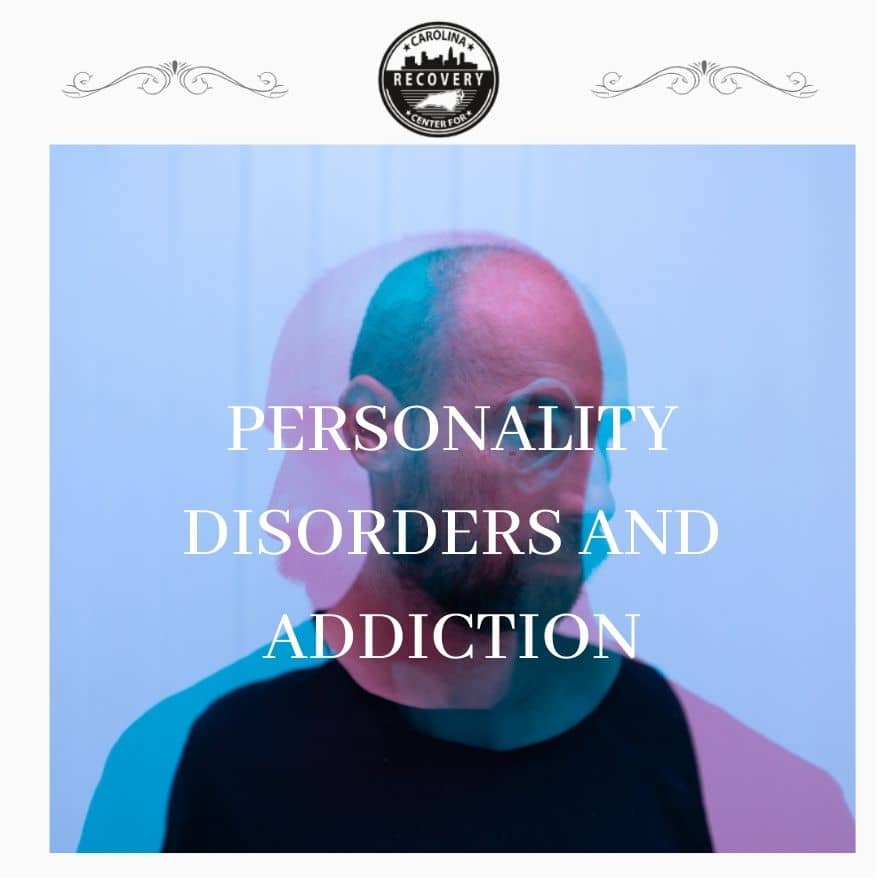Personality Disorders and Addiction

Medically Verified: 2/1/24
Medical Reviewer
Chief Editor

All of the information on this page has been reviewed and verified by a certified addiction professional.
According to the National Institutes of Mental Health, personality disorders are characterized by “an enduring pattern of inner experience and behavior that deviates markedly from the expectations of the individual’s culture.”[1]
In other words, personality disorders cause individuals to struggle with daily tasks, regulate their emotions properly, and have interpersonal relationship issues.
While personality disorders are less talked about, a large portion of American adults suffer from them. According to research, about 9% of U.S. adults aged 18 or older have a personality disorder.[1]
Because of the struggles that personality disorders cause individuals to deal with, it is extremely common for them to begin abusing drugs and alcohol. In fact, nearly 23% of all individuals with a personality disorder have a co-occurring substance use disorder.[1]
Understanding the connection between personality disorders and addiction can help individuals learn how to prevent themselves from developing a substance use disorder.
What are Personality Disorders?
A personality disorder is a mental health condition that causes individuals to have an altered perception and reaction to themselves and the world around them.
According to the National Library of Medicine, personality disorders “involve long-term patterns of thoughts and behaviors that are unhealthy and inflexible. The behaviors cause serious problems with relationships and work. People with personality disorders have trouble dealing with everyday stresses and problems.”[2]
The diagnostic criteria for the broad range of personality disorders include:
- Experiencing significant impairment in self-identity, self-direction, and interpersonal functioning
- Possessing one or more pathological personality trait domains or facets
- Consistent impairments that occur over time and in a variety of situations
- The impairments are outside of normal development
- The symptoms are not caused by a person’s environment, medical condition, or substance use disorder
Types of Personality Disorders
There are several different types of personality disorders. The various types of these mental health conditions are categorized in three clusters based on the types of symptoms they cause.
Cluster A personality disorders are characterized by odd and eccentric thinking or behaviors.
These conditions include:
- Paranoid personality disorder
- Schizoid personality disorder
- Schizotypal personality disorder
Cluster B personality disorders are defined by dramatic, erratic, and overly emotional thoughts and behaviors. These conditions include:
- Antisocial personality disorder
- Borderline personality disorder
- Histrionic personality disorder
- Narcissistic personality disorder
Cluster C personality disorders are associated with thoughts and behaviors that are driven by anxiety and fear. These conditions include:
- Avoidant personality disorder
- Dependent personality disorder
- Obsessive-compulsive disorder
How are Personality Disorders and Addiction Connected?
People who suffer from personality disorders have a hard time regulating their own emotions. This makes it extremely difficult for them to cope with everyday stressors and traumatic events. As a result, they may begin to self-medicate by using alcohol and drugs to soothe their thoughts and emotions.
For example, an individual with a Cluster B personality disorder may abuse substances to soothe their uncontrollable and extreme emotions. On the other hand, a person with a Cluster C personality disorder may use drugs to feel more confident in social situations.
According to research, 46% of patients with a substance use disorder also suffer from a personality disorder. Also, the two most common personality disorders to co-occur with addiction are antisocial personality disorder and borderline personality disorder.[3]
Whatever the reasoning might be, individuals with personality disorders who abuse drugs or alcohol are at an increased risk of developing a comorbid substance use disorder. Additionally, abusing drugs to treat a personality disorder only further exacerbates the individual’s symptoms. This causes them to experience a brutal cycle of addiction and mental health crises.
Treating a Co-Occurring Personality Disorder and Addiction
Oftentimes, individuals who have personality disorders have a hard time recognizing their behaviors are problematic or out of the range of “normal”. Unfortunately, substance use disorders are notorious for causing feelings of denial. Because of this, individuals with comorbid personality disorders and addiction may struggle to recognize that they need treatment.
As a result, many people with co-occurring personality disorders and substance use disorders benefit from professional interventions. These family meetings are facilitated by a mental health and addiction expert who can help the individual recognize their need for professional treatment.
Once an individual is ready to accept help, they should attend an integrated dual diagnosis treatment center. These programs include the following services for comorbid personality disorders and addiction:
- Medical detox
- Individual and group counseling
- Behavioral therapies like cognitive behavioral therapy (CBT) or dialectical behavior therapy (DBT)
- 12-step facilitation therapy
- Medication management for psychiatric symptoms
- Medication-assisted treatment (MAT) options for addiction
- Relapse prevention planning
- Aftercare services
- References for sober living homes and halfway housing programs
While the treatment of co-occurring personality disorders and addiction can be complicated, recovery is possible. Attending a full continuum of care that includes behavioral therapy and peer support services will help individuals learn to regulate their emotions, develop positive coping mechanisms, and improve their interpersonal relationship skills.
Attending a Dual Diagnosis Treatment Program in North Carolina
If you or a loved one suffer from a personality disorder and drug or alcohol addiction, finding professional treatment is necessary. Carolina Recovery Center is a top-rated dual diagnosis treatment program located in North Carolina.
Our addiction and mental health professionals can help you or your loved one learn to manage the symptoms of their personality disorder and maintain long-term sobriety. Contact us today for more information on how to get started.
References:

